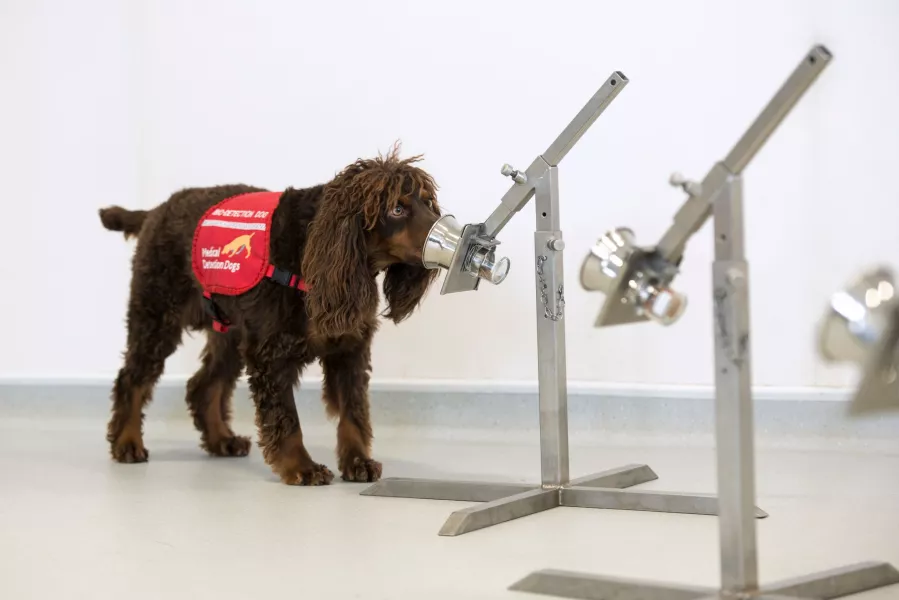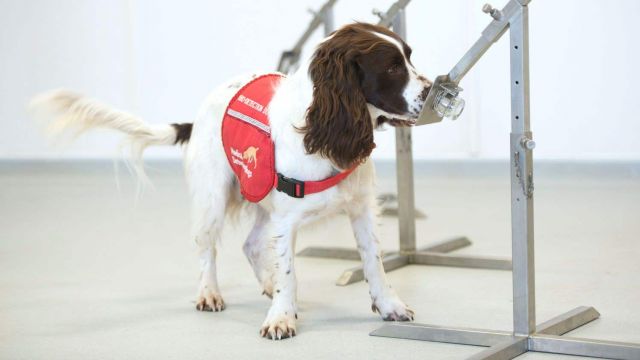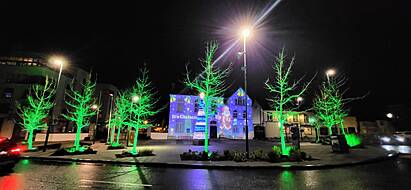Testing has begun to see whether medical detection dogs can also be trained to smell the disease.
Scientists are seeking “odour samples” from people in north west England to see whether dogs can accurately pick up the scent of Covid-19, even in people who are asymptomatic.
There could be huge implications if the dogs can successfully smell out Covid-19, not just in medical settings but in other sectors of society too, with researchers estimating the animals could potentially screen up to 250 people an hour.
As part of the trial, led by the London School of Hygiene and Tropical Medicine (LSHTM) in collaboration with the charity Medical Detection Dogs and Durham University, people in the north west – where there has been a recent rise in cases – are being asked to contribute.
If successful, this trial could revolutionise how we diagnose the virus
Patients who have mild Covid-19 symptoms and are due to have a swab test, or have had a swab test conducted in the previous 24 hours, are being recruited by researchers.
The volunteers will provide samples of breath and body odour by wearing a mask for three hours, and nylon socks and a T-shirt for 12 hours.
Researchers hope to collect 325 positive and 675 negative samples in order to be fully test the dogs for accuracy.
Samples from NHS volunteers and their families are also being collected.
1⃣
You know we're looking into the paws-ibility of dogs detecting #COVID19? 🐾
Well we're thrilled to announce that @DHSCgovuk is funding the trial led by @ProfJamesLogan! If successful they could be a new rapid testing measure for the #coronavirus.
👉 https://t.co/wjuqFPLwLi pic.twitter.com/jDxFiQrQMOAdvertisement— London School of Hygiene & Tropical Medicine (@LSHTM) May 16, 2020
LSHTM researchers will analyse the samples to identify compounds in odour that signify when someone is infected with Covid-19.
The samples will then be sent to the Medical Detection Dogs’ training centre in Milton Keynes where the animals will undergo training to identify the virus samples.
“If successful, this trial could revolutionise how we diagnose the virus,” professor James Logan, project lead and head of the Department of Disease Control at LSHTM, said.
“Rapid screening of high numbers of people, even if asymptomatic, will help return our lives back to some sort of normality.”
It is hoped that if the trial is successful the dogs can be used at UK airports to screen people arriving from abroad.

Claire Guest, chief executive of Medical Detection Dogs, added: “It is vital that we train our dogs to detect the odour of Covid-19 as soon as possible so we can help ensure people move about freely and safely.
“The latest travel disruptions further highlight the difference the dogs could make. Public support is essential in making this possible.
“Anyone who assists us by providing samples will be playing a part in creating a fast, effective and non-invasive diagnosis for the virus and safer spaces for us all.”
Professor Steve Lindsay, from the Department of Biosciences at Durham University, said: “If we can show that our trained dogs can identify people carrying the virus, but who are not sick, it will be a game changer.
“We will then be able to scale-up the use of dogs at ports of entry to identify travellers entering the country with the virus. This could be very important to help prevent a second wave of the epidemic.”







